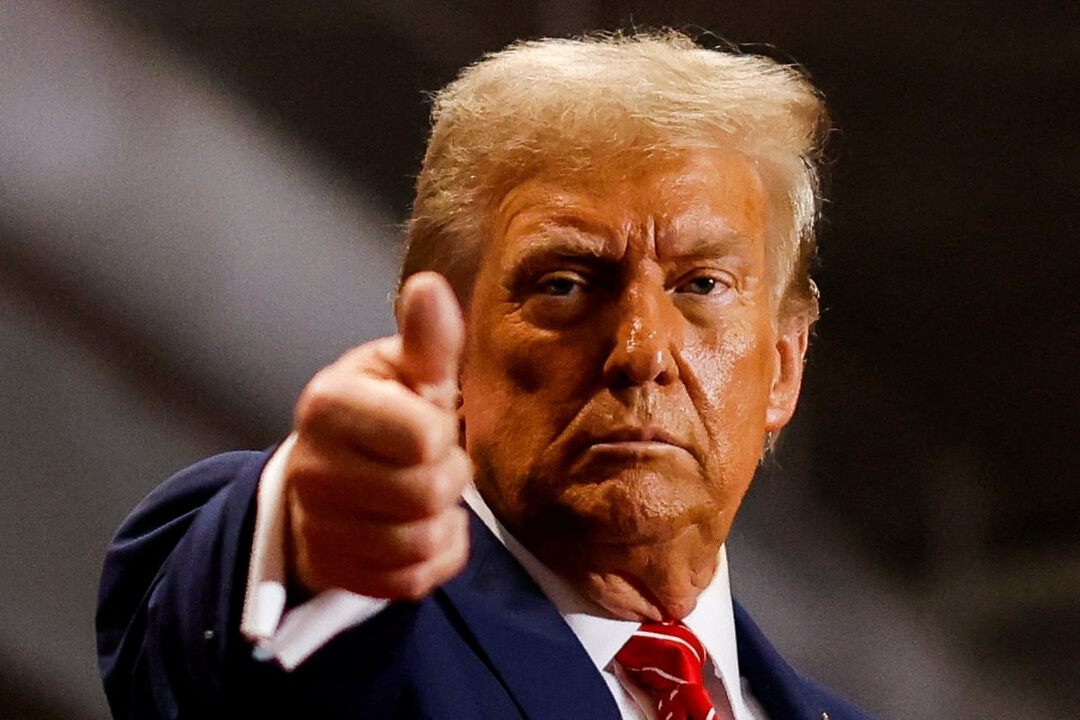
WASHINGTON D.C. – In a dramatic shift of policy, the United States, under President Donald Trump, is reportedly contemplating direct military intervention against Iran, including providing aerial refueling support for Israeli fighter jets and potentially using 30,000-pound bunker-buster bombs to destroy Iran's underground Fordow nuclear facility. This hawkish turn comes as President Trump calls for Iran's "unconditional surrender," marking a significant departure from the diplomatic solutions previously pursued just two months prior, as reported by The New York Times on June 17.
The change in posture follows a period where President Trump, after regaining office, had invested considerable effort into reaching a new nuclear agreement with Iran. However, negotiations remained stalled due to persistent disagreements between the two sides. The situation drastically altered on June 13 when Israel launched a surprise attack on dozens of Iranian nuclear and military facilities. The shift in Trump's mindset became evident when he abruptly departed the G7 Summit in Kananaskis, Canada, on June 16, returning to Washington, signaling a growing conviction that diplomacy alone could not resolve the Iranian crisis, according to the NYT's analysis. On June 17, Trump further escalated his rhetoric on Truth Social, hinting at the possibility of targeting Iran's Supreme Leader Ali Khamenei, stating, "Our patience is wearing thin."
This escalating stance is attributed to Iran's increasingly sophisticated nuclear capabilities, the protracted nature of negotiations, and the relentless persuasion of Israeli Prime Minister Benjamin Netanyahu, who has consistently advocated for a tougher approach against Iran.
Netanyahu's Persistent Advocacy: "Military Pressure Essential for Nuclear Deal"
According to the NYT and other sources, Prime Minister Netanyahu has consistently urged President Trump that "overwhelming military action is necessary before Iran reaches the point where it can rapidly produce nuclear weapons." Netanyahu has repeatedly emphasized that Iran would never abandon its nuclear ambitions and that military pressure is an indispensable prerequisite for successful diplomatic negotiations.
Initially, President Trump had reportedly cautioned Netanyahu against his more extreme proposals, including the removal of Khamenei. However, as the Iranian nuclear negotiations continued to falter, Trump's perspective began to change.
It is reported that when CIA Director John Ratcliffe briefed Trump on June 8 about the possibility of an Israeli attack on Iran, Trump did not oppose the strike itself, marking a departure from his previous stance of deterring such actions. Instead, Trump opted for a strategy of minimal support to Israel without direct endorsement, aiming to pressure Iran into concessions afterward.
Five days later, Israel launched its attack, eliminating key military leaders, including Hossein Salami, Commander-in-Chief of the Islamic Revolutionary Guard Corps (IRGC). As Iran found itself cornered, Trump's stance grew progressively harder. This suggests a strong likelihood that he viewed this period as a "golden time" to conclude the sluggish nuclear negotiations, favoring a "maximum pressure" strategy.
Another factor influencing this policy shift appears to be President Trump's strong "desire for recognition." Following Israel's attack on Iran, pro-Trump media outlets like Fox News lauded the operation as "successful," prompting Trump's apparent desire to align himself with the success and claim credit. Criticisms of his domestic policies, such as the stalled peace efforts in the Ukraine war and his tariff and anti-immigration policies, are also believed to have fueled Trump's ambition for foreign policy achievements.
Deep-Seated US Animosity Towards Iran: A Historical Perspective
Axios reported that President Trump held an 80-minute National Security Council (NSC) meeting in the White House Situation Room on June 17 regarding the situation, followed by a phone call with Prime Minister Netanyahu. This raises the possibility that Trump shared the meeting's outcomes with the Israeli side and discussed potential US military involvement. If the US were to provide actual military support, discussions are reportedly encompassing a range of options, from passive assistance like aerial refueling to active involvement through the deployment of aircraft carriers and massive "bunker-buster" bombs.
The roots of President Trump's "maximum pressure" policy against Iran are also attributed to a deep-seated animosity towards Iran prevalent throughout American society. This animosity dates back to the 1979 Iranian Revolution in February, when Islamic forces overthrew the 2,500-year-old monarchical rule. In November of the same year, demanding the extradition of the Shah Pahlavi, who had fled to the US after the revolution, Iranian revolutionaries occupied the US Embassy in Tehran for 444 days, taking 52 Americans hostage. This incident profoundly damaged the pride of the United States, then the world's superpower. President Trump, even during his first term, frequently emphasized the number "52" to express his hostility towards Iran. Even when the Iran-Iraq War erupted in 1980, the US actively supported Iraq, maintaining its adversarial stance against Iran.
Further exacerbating tensions, in October 1983, the pro-Iranian militant group Hezbollah carried out a bombing at the US Marine Barracks in Beirut, Lebanon, killing 241 American servicemen. This was the largest single-day loss of American lives since the Vietnam War. In response to this outrage, the US designated Iran as a state sponsor of terrorism in 1984. Former President George W. Bush, after the September 11th attacks in 2001, famously labeled Iran, North Korea, and Iraq as the "Axis of Evil."
The current considerations for military action underscore a critical juncture in US-Iran relations, with the potential for widespread implications across the Middle East and globally. The coming days and weeks will reveal whether diplomacy can still find a path forward or if the escalating rhetoric will pave the way for a more direct confrontation.
[Copyright (c) Global Economic Times. All Rights Reserved.]




























